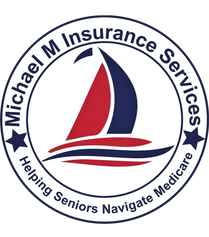Medicare Supplement Plan Premiums Are Rising—Why Not a Medicare Advantage Plan?
As Medicare Supplement premiums continue to climb, it’s no surprise that many people are
starting to ask:
“Should I consider switching to a Medicare Advantage plan?”
It’s a fair question—and one worth exploring.
This blog will help you understand the pros and cons of Medicare Advantage vs. Medicare
Supplement (Medigap) plans so you can make a smart, informed decision. No pressure. No
pushy language. Just the facts, in plain English, so you can figure out what’s best for you.
For years, Medigap plans—especially Plan G and Plan F—were the gold standard for
covering the gaps in Medicare. You pay a higher monthly premium, but most of your
out-of-pocket costs are taken care of. That peace of mind is worth a lot.
But lately, those premiums are rising—some by double digits each year.
Why?
- Aging risk pool: More older adults = more claims = higher costs
- Medical inflation: Prices for services and treatments keep going up
- Low utilization by some members: Healthy individuals may be paying high premiums and using very little care
If you’re feeling squeezed by your Medigap premiums, you’re not alone. So the next logical step
for many people is to consider Medicare Advantage.
The Reality: Medicare Supplement Premiums Keep Going Up
What Is a Medicare Advantage Plan?
Medicare Advantage (Part C) is a different way to get your Medicare benefits. These plans are
offered by private insurance companies and must cover everything Original Medicare
does—and often a lot more.
Most include:
- Low or $0 monthly premiums
- Prescription drug coverage
- Dental, vision, and hearing benefits
- Gym memberships or wellness perks
- Out-of-pocket maximums(Original Medicare has none)
That’s why nearly 50% of Medicare beneficiaries have now chosen a Medicare Advantage
plan. They’re popular, especially among those on a fixed income who are tired of rising
premiums.
But… Aren’t There Downsides?
Yes, and it’s important to be honest about them. Medicare Advantage plans aren’t perfect, and
they aren’t the right fit for everyone.
Here are some pros and cons to help you compare:
Medicare Advantage – Pros
- $0 or Low Monthly Premiums : Many plans have no premium at all beyond what you already pay for Part B.
- Includes Part D drug coverage : You don’t need a separate plan.
- Extra benefits : Dental, vision, hearing, transportation, and even groceries in some cases.
- Annual out-of-pocket maximums : Protects you financially.
- Coordinated care : Many plans have care teams that help manage chronic conditions.
Medicare Advantage – Cons (Updated)
- Network Restrictions You may need to use doctors and hospitals in the plan’s network. (Some networks are national and very large, offering wide access—others are more local. Always check.)
- Referrals and Authorizations Some plans require you to get prior approval before seeing a specialist or receiving certain procedures. (Most plans have done away with referrals, but it’s still wise to ask about authorizations.)
- Limited Coverage While Traveling These plans generally focus on local care. (This can be a problem with small regional plans, but many large national plans offer travel benefits and network flexibility—even emergency or urgent care when away from home.)
- Varied Copays You may have small copays for each visit, service, or test. In a year with many health issues, these costs can add up.
Medicare Supplement – Pros
- Nationwide access : See any doctor who takes Medicare—no referrals needed.
- Predictable costs : Pay your premium, and most other costs are covered.
- Freedom to travel : Great for people who split time between states.
- No network restrictions : Your choice of providers is up to you.
Medicare Supplement – Cons
- Higher monthly premiums : You pay more each month regardless of how much you use the plan.
- Separate drug coverage required : You’ll need a Part D plan.
- No extra benefits : No dental, vision, hearing, etc., unless you buy separate coverage.
“But I Heard Medicare Advantage Plans Are Bad…”
Let’s address the elephant in the room.
You’ve probably seen headlines or heard stories criticizing Medicare Advantage. Some
complaints are valid—especially regarding prior authorizations and network limits. But many of
the negative headlines are either exaggerated, outdated, or just not true for most people.
Millions of Medicare beneficiaries are satisfied with their Advantage plans.
The key is choosing the right plan that fits your needs, doctors, prescriptions, and health
conditions—and working with someone who can help you do that without pressure.
There’s no one-size-fits-all answer.
But here’s how to think about it:
- You want to lower your monthly premium
- You’re okay with using a local provider network
- You don’t travel much
- You like the idea of dental, vision, and hearing benefits
- You’re relatively healthy and want to save money
- You want full freedom to see any doctor nationwide
- You travel often or live in multiple states
- You have chronic conditions and need frequent specialist care
- You prefer simple, predictable costs
- You’re okay paying a higher premium for more freedom
Final Thoughts
If your Medicare Supplement premium is starting to feel like a second mortgage , it’s okay
to re-evaluate. Medicare Advantage plans are not evil, second-rate, or only for people who
“can’t afford better.” That stigma just isn’t true anymore.
They’re different—and for many, they’re the right kind of different.
Just be sure to weigh your options carefully. Your health needs, lifestyle, and budget all matter.
And if you’re unsure? Ask someone you trust to help you compar
You don’t need to figure this out on your own. There’s no pressure to change—only an opportunity to make sure your coverage still fits your life.

